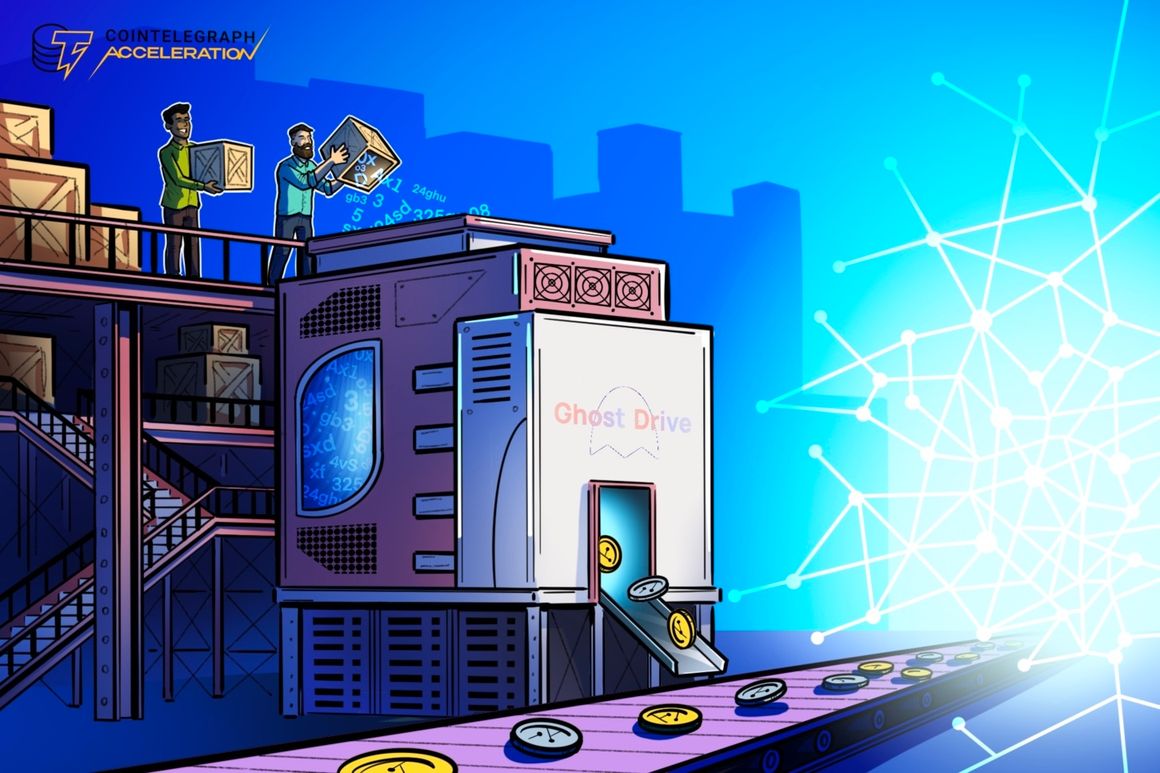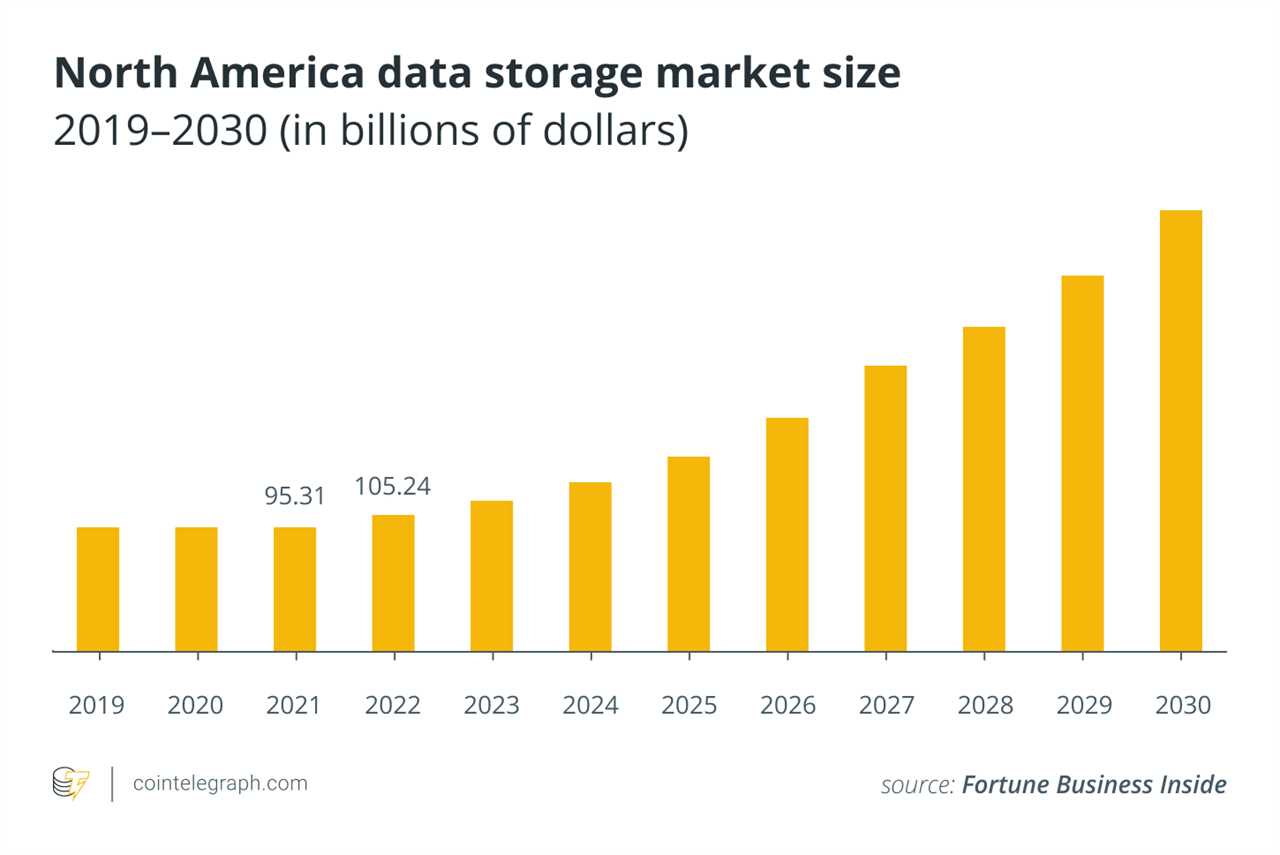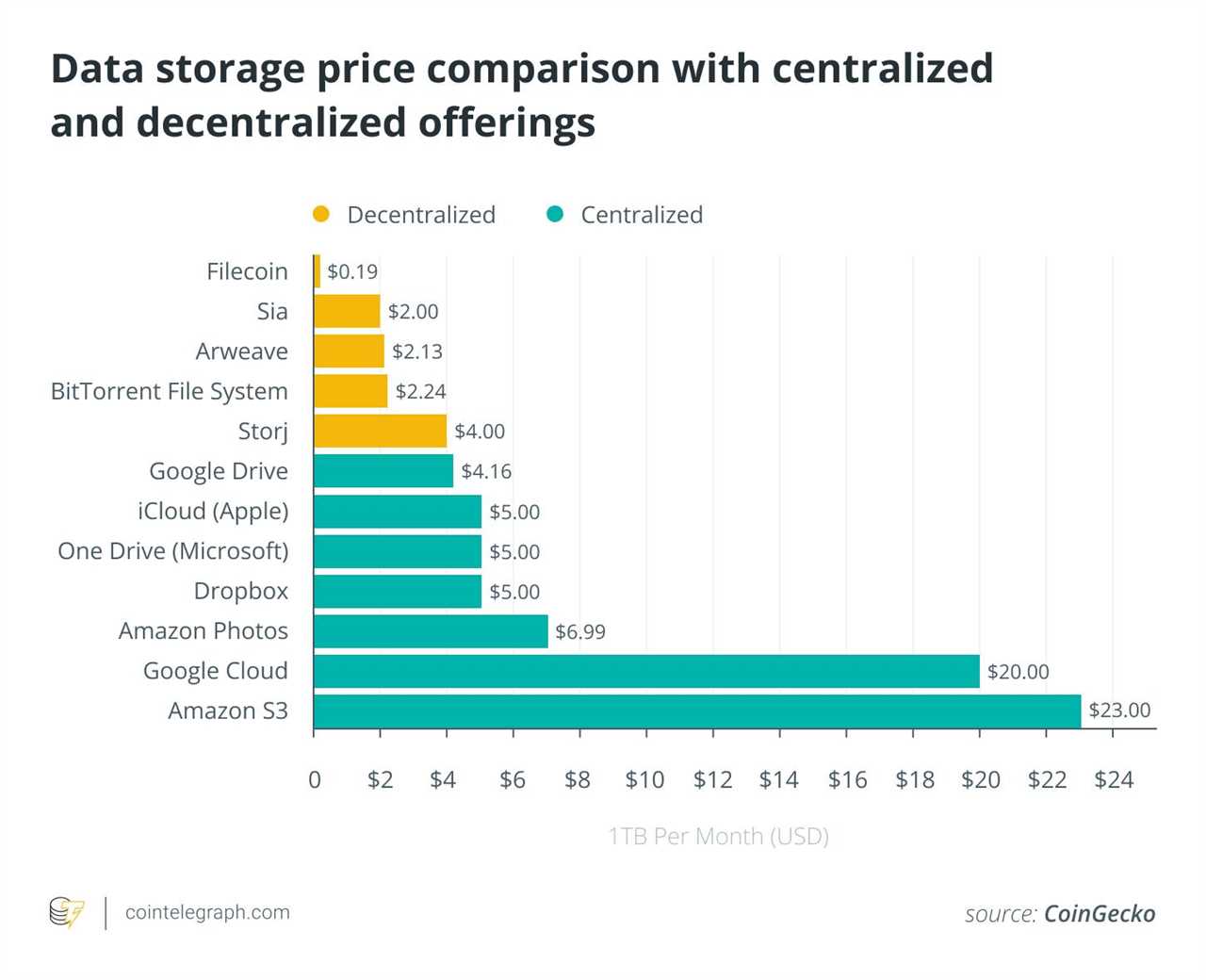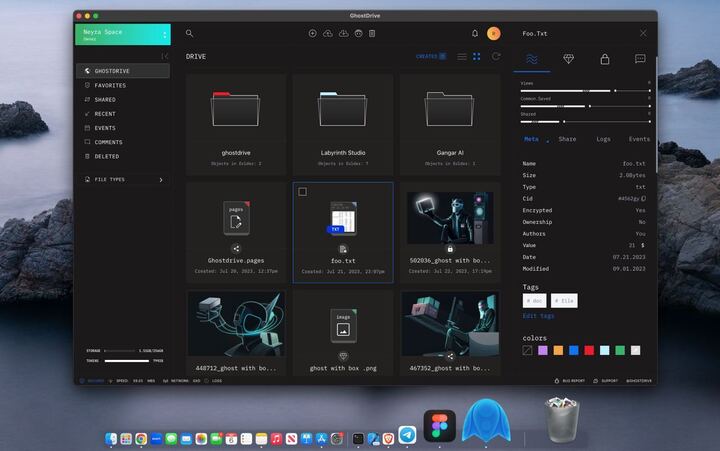
Introduction
As blockchain technology continues to gain popularity, the question arises: what will attract the next billion users to the ecosystem? Two potential driving forces could be the adoption of green coins or greater acceptance from governments worldwide. However, it is the real-world applications that will ultimately draw the attention of the masses and encourage widespread adoption of blockchain-based technologies. One such application is data storage, an industry currently plagued by centralized monopolies that limit user control and data ownership.
The Current State of Data Storage
According to a report by Fortune Business Insights, the data storage market was valued at $217 billion in 2022 and is projected to surpass $777 billion by 2030. However, due to the lack of competition, large corporations have been able to dominate the market, resulting in stagnant improvements for end users. This has led to high costs and concerns over privacy and data control among average users.

Decentralized Infrastructure Networks
A solution to the challenges of centralized data storage is the emergence of decentralized physical infrastructure networks (DePINs). These networks, such as Filecoin and Arweave, offer easy scalability, enhanced security, and distributed storage through interconnected physical resources like servers and storage devices. By utilizing DePINs, data storage services can provide customers with more affordable pricing options.
Push Toward Cloud Storage
Given the limited storage capacity of most smartphones and the increasing size of files (such as 4K videos), centralized entities like Google and Apple have been pushing users toward cloud storage. However, this comes at a high cost for users. In contrast, DePIN solutions, like Filecoin, offer significantly lower prices, but their focus has been primarily on infrastructure and enterprise-grade solutions rather than consumer-oriented applications.

The Rise of GhostDrive
Enter GhostDrive, a new Web3 data storage platform that puts the end user at the forefront. Designed to provide a user-friendly experience, GhostDrive aims to rival centralized alternatives like Google Drive. Users have the choice between integrating their MetaMask wallet or opting for traditional email registration, streamlining the onboarding process from Web2.
Powered by the InterPlanetary File System (IPFS) and Filecoin, GhostDrive offers asset tokenization and secure data exchange. The platform prioritizes data privacy and security, encrypting files before transmission and storage. Only authorized users can access and decrypt these files, and customization options for encryption rules ensure collaborative projects are accessible while personal photos remain private.

GhostDrive's unique approach to data security allows users to take control of protecting their own data. While the platform safeguards the infrastructure, users secure their data, reducing their reliance on service providers. The use of MultiSig technology further enhances security and facilitates collaborative data management.
In addition to these features, GhostDrive enables on-the-fly file conversion and compression, allowing users to switch between various formats without the need for external tools.
GhostDrive Joins Cointelegraph Accelerator
The Cointelegraph Accelerator program has recognized GhostDrive's potential to disrupt data storage and tokenization. By providing a real-life use case, GhostDrive aims to become a gateway for new users to the Web3 ecosystem. As a participant in the program, the Singapore-based company aims to become an all-in-one platform for data encryption, control, and ownership.
Did you miss our previous article...
https://trendinginthenews.com/crypto-currency/introducing-seamless-protocol-enabling-trustless-smart-contracts-for-noncustodial-liquidity-markets






